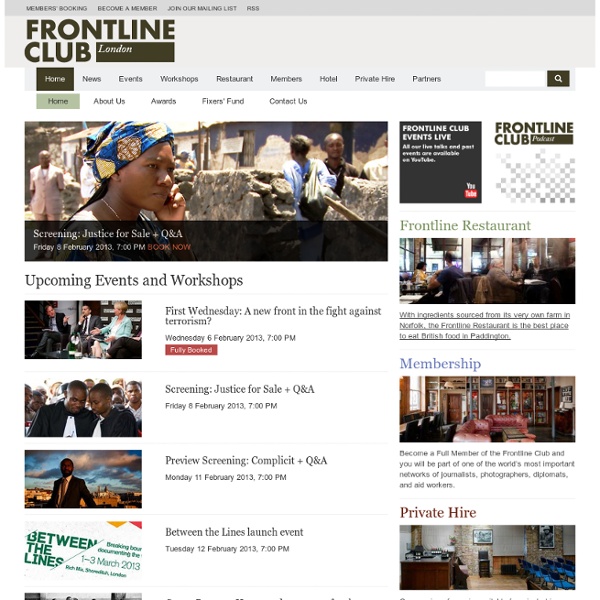Frontline - Championing Independent Journalism

The Jakarta Globe
Microsoft Quashed Personal Privacy Features of IE8 Browser
Before I Die
What matters most to you Interactive public art project that invites people to share their personal aspirations in public. After losing someone she loved and falling into depression, Chang created this experiment on an abandoned house in her neighborhood to create an anonymous place to help restore perspective and share intimately with her neighbors. The project gained global attention and thanks to passionate people around the world, over 1000 Before I Die walls have now been created in over 70 countries, including Kazakhstan, Iraq, Haiti, China, Ukraine, Portugal, Japan, Denmark, Argentina, and South Africa. The walls are an honest mess of the longing, pain, joy, insecurity, gratitude, fear, and wonder you find in every community, and they reimagine public spaces that nurture honesty, vulnerability, trust and understanding. 2011, New Orleans, LA. Cordoba, Argentina. Najaf, Iraq. Brooklyn, NY. Almaty, Kazakhstan Savannah, GA. Pohang City, South-Korea. San Francisco, CA.
GroundTruth »
EXILED ONLINE - MANKIND’S ONLY ALTERNATIVE
News Photos - News Pictures - Photo Essays
Salvation Mountain by Aaron Huey Friday, Feb. 14, 2014 Folk artist Leonard Knight, creator of Salvation Mountain, died on Monday afternoon in San Diego. He was 82. Kiev's Battlefield: Protests Ignite Fiery Clashes in Ukraine Wednesday, Jan. 22, 2014 Demonstrations that have gripped the capital since November over the government's refusal to make a trade deal with the European Union are turning increasingly violent as two protesters were killed during a bloody melee Wednesday.
Related:
Related:



